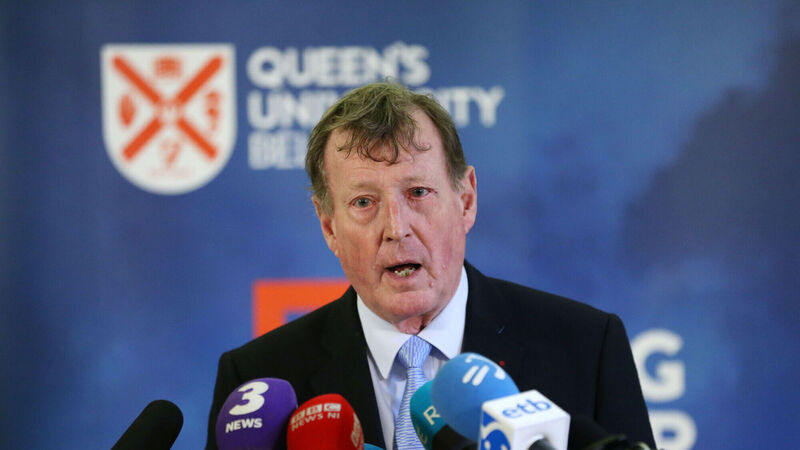Irish Examiner view: Trimble occupied a historic but difficult space

David Trimble during an event to mark the 20th anniversary of the Good Friday Agreement, at Queen's University in Belfast, in 2018. Picture: Brian Lawless/PA
Try from €1.50 / week
SUBSCRIBEThe passing of David Trimble at the age of 77 breaks another link with the founding spirits of the Good Friday Agreement, which brought protracted peace to Northern Ireland after nearly 40 years of tension, violence, and recrimination.
Among the departed architects of faith and hope, John Hume will always be remembered for his close collaboration and friendship with the former Ulster Unionist Party leader, which led to the joint award of the Nobel Peace Prize in 1998.
Already a subscriber? Sign in
You have reached your article limit.
Annual €130 €80
Best value
Monthly €12€6 / month
Introductory offers for new customers. Annual billed once for first year. Renews at €130. Monthly initial discount (first 3 months) billed monthly, then €12 a month. Ts&Cs apply.
CONNECT WITH US TODAY
Be the first to know the latest news and updates
Newsletter
Sign up to the best reads of the week from irishexaminer.com selected just for you.
Newsletter
Keep up with stories of the day with our lunchtime news wrap and important breaking news alerts.
Newsletter
Sign up to the best reads of the week from irishexaminer.com selected just for you.
Monday, February 9, 2026 - 6:00 AM
Monday, February 9, 2026 - 8:00 AM
Monday, February 9, 2026 - 12:00 PM
© Examiner Echo Group Limited